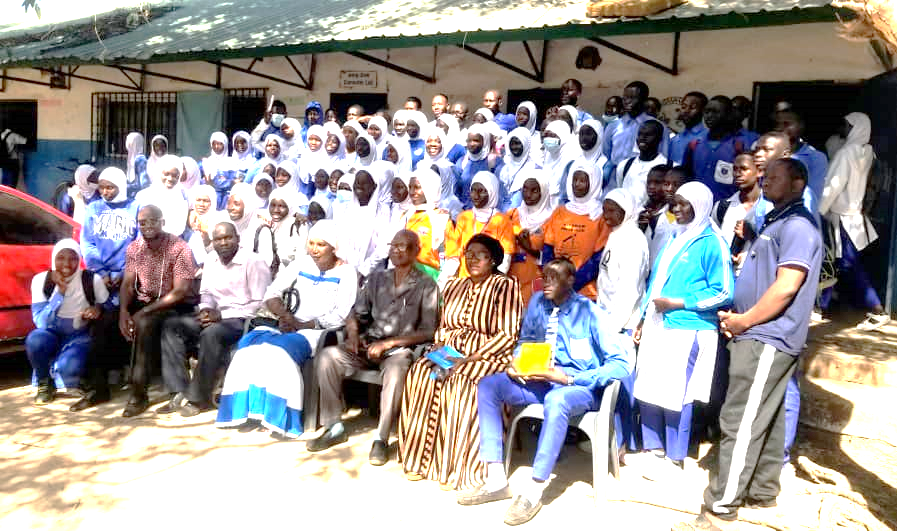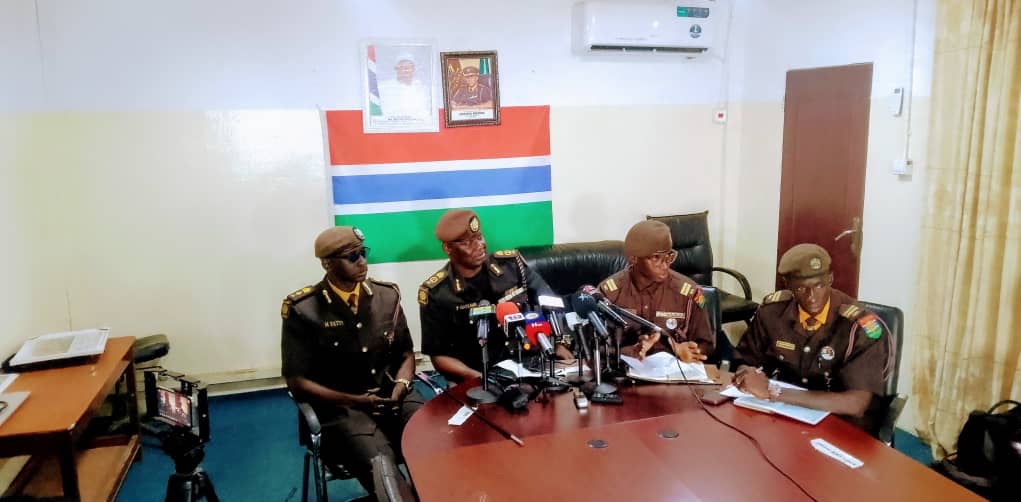The Never Again Network launched its Right to Know campaign on Thursday, December 8 with a very fruitful engagement with student leaders of Mingdaw Upper Basic and Senior Secondary School in Farato. The school’s management facilitated the participation of all class prefects and councilors in the school, representing the student body from Grades 7 – 12.
In welcoming the Never Again Team, Madam Kumba Kongira, the school’s Vice Principal for Academics, encouraged the students to pay close attention, take notes and learn lessons which they would later share with the student body. She emphasized the importance of the engagement to the students, whom she described as the future leaders of this country. She revealed that the students at the event will form a group and make presentations to the entire student body at an upcoming week of cultural events at the school.
Following Madam Kongira’s opening remarks, members of the Never Again Network team proceeded to address the students on the mission of the Network, the importance of girls education, empowerment and human rights, why Never Again, and why it was important for students and young people in general to understand their recent history and the proper relations between state and nation, government and people.
The team encouraged students to learn to be not only good citizens, but also good human beings as well because The Gambia is one big family and all human beings are united by their origin from God. One student leader recited a powerful poem on the need for justice, reconciliation and noon-repetition in this country.
The Never Again Network’s Right to Know campaign is inspired by an urgent need to help the Gambian people, especially young people, know some of the things they need to know in order to feel empowered enough to hold their government accountable and make informed choices when they participate in their country’s democracy.
The campaign is premised on the provisions of the Universal Declaration of Human Rights, and in particular those articles that emphasize the inherent equality of human beings (Articles I, II & III), the right to freedom from cruel, inhuman and degrading treatment (Articles 5 & 6), the right to equality before the law (Articles 7, 8, 9, 10, 11, & 12), the right to freedom of thought, conscience and religion (Article 18), the right to freedom of expression and association, and to receive and impart information (Articles 19, 20), and the right to effectively participate in one’s government through lawful and genuine elections and to have their will be the basis of government authority (Article 21).
The Right to Know campaign also incorporates lessons on the rights and responsibilities of citizens, as well as on the obligations and desired modes of behavior of human beings towards another.
The Mingdaw engagement marks the first of several engagements the Network plans to have with various schools and other sectors of Gambian society in the coming weeks and months.





